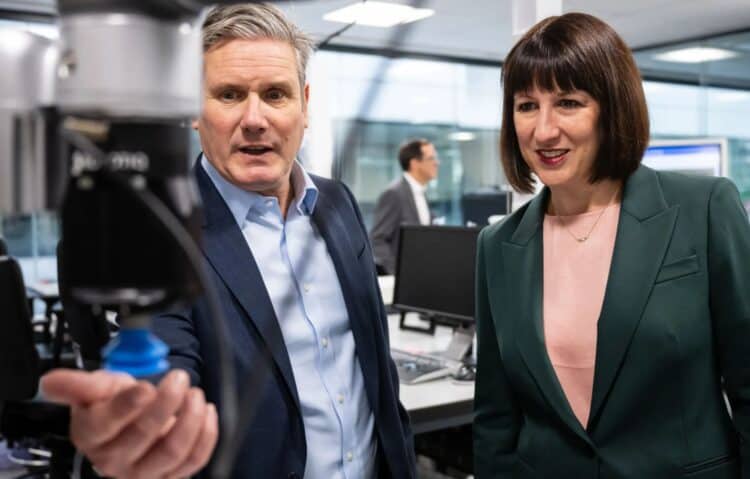While much of the intense media coverage of the UK government’s freebies scandal might be attributable to overzealous scrutiny by a predominantly right-of-centre printed press, there is at least one important issue at the heart of all this.
It should be acknowledged that the gifts are in line with existing regulations – and also arguably less controversial than some of the donations received by members of former Conservative governments. But this Labour government sold itself as something different.
Several frontbench figures, including prime minister Keir Starmer and deputy prime minister Angela Rayner focused heavily on their working-class credentials ahead of the election. They were doing so to reinforce the message that they are infinitely more in tune with regular people than the Tories.
Several Labour ministers have accepted donations and freebies from big business and wealthy individuals. Lord Alli lent Starmer his £18m London flat and a New York property to Rayner for a holiday. Several Labour MPs were given tickets to Taylor Swift concerts, and perhaps more importantly, £4 million was donated to the Labour party by Quadrature – a tax-haven-based hedge fund with shares in the arms manufacturing, private healthcare and fossil fuel industries.
The obvious question is why these companies and wealthy individuals have made these donations and what they expect in return. People don’t make political donations out of the kindness of their hearts. They often expect something in return, whether in the form of a seat in the House of Lords or a lucrative state contract.
Even in cases where there is no reciprocity, there are deeper questions of professional and political ethics that arise from donations. And fair or not, those questions are more pressing for a Labour government.
There is, first of all, a matter of perception during a cost of living crisis. Labour MPs have just voted to keep the two-child benefit cap and remove universal winter fuel payments. Against this backdrop, it’s not a stretch to suggest accepting glamorous gifts creates a distance between lawmakers and the people they govern.
But beyond that perception is the fact that living a privileged life may have a material effect on an MP’s outlook. There is a significant body of evidence showing that upward social mobility leads people towards more rightwing views on the economy.
That may be particularly true of politicians. For this group, the trajectory is the most extreme. If you start from a working-class position in society and end up being part of the group that effectively leads that society, your vantage point could not be more different. You are less likely to try to change the status quo that is now the source of your own social and financial benefits.

To be fair, research my colleagues and I conducted shows that working-class origins have a lingering effect on an MP’s outlook when they enter parliament. They are more likely to take an interest in issues that are important to working-class voters, for example.
But this effect is diluted by party discipline, such as when MPs are whipped to vote in a certain way (such as on benefits). Social mobility, and in particular a simmering angst about falling back down the social ladder, also shapes these MPs’ decisions.
Closing the experience gap
It doesn’t have to be this way. In the 1980s, one of the most leftwing and working-class Labour MPs at the time, Terry Fields, ran and won an election on the slogan “a worker’s MP on a worker’s wage” – pledging to only draw a salary equivalent to a fireman’s and to donate the remainder.
This is not to argue that MPs should give up their salaries or that they’re incapable of empathy, but it does show why freebies are such a glaring problem for a new government.
Working-class people have, themselves, indicated that this experience gap matters to them. Their political alienation over the past few decades has been fuelled by their sense that they do not recognise themselves in the current political elite and the inequality-enhancing policies the elite have been enacting.
The last election recorded one of the highest abstention rates (and according to at least one estimate, actually the highest) since the introduction of universal suffrage.
And should a political party remain unmoved by those statistics, there is the small matter of electoral survival. Taken more cynically, working-class communities have become the electoral battlegrounds of the modern era.
There are not many promising signs so far that the new Labour government is up to the task of representing the working class once again – even the recent workers’ rights legislation has been criticised as falling short by some of the trade unions. And while there’s a long way to go before we know if the freebies scandal will end up costing Labour support at the next election, it certainly won’t be counted as a bonus.
You may also like: Bus fare cap would have risen to £10 if Labour had not acted, says Wes Streeting







